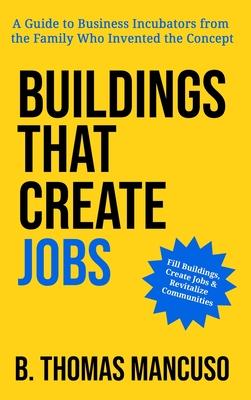Among the many endeavors into which entrepreneurs might invest their time and effort, few are as rewarding and impactful as a business incubator. Recycling vacant buildings to provide job creators a place to set up shop within a community can boost a local economy and benefit nearly every member of a struggling city, town, or village. The need for hometown, community-centric, job-focused, locally sustainable spaces continues to increase. For a distressed community, an incubator might be the right answer.
Buildings That Create Jobs explores the strategy, startup, and operation of business incubators, detailing ways to find, recycle, and fill existing industrial and commercial buildings to create entrepreneurial and artisan opportunities.
Since 1959, the Mancuso family has been the touchstone of business incubation. Now, Thomas Mancuso reveals the foundational principles taught to him by his father, Joseph Mancuso, the famed originator of the business incubation concept. After managing more than two million square feet of business incubator and business development real estate, Thomas Mancuso is a leading authority on the practice.
You will learn:
- Why real business incubators work to create jobs and make money.
- Ways to help ensure the success of businesses within an incubator.
- How to attract businesses of all sizes from anchor stores to single owners.
- The financial side of incubators and ways to fund them.
- The unique advantages of recycled buildings over new construction.
- How to deliver a value-creating program for your market
- Ideas to reduce costs while maintaining quality management.
- And much more!
Buildings That Create Jobs offers the Mancuso family's more than 60 years of effort filling buildings with businesses to create prosperity for all involved.
Thomas Mancuso is a licensed real estate broker in the state of New York. He has addressed international audiences on business incubators. A graduate of the Rochester Institute of Technology, he has lived his entire life around industrial and commercial buildings. His company manages projects that range from filling a 680,000 square foot rural factory building to revitalizing an underperforming 16,000 square foot urban project into a profitable small business center.
